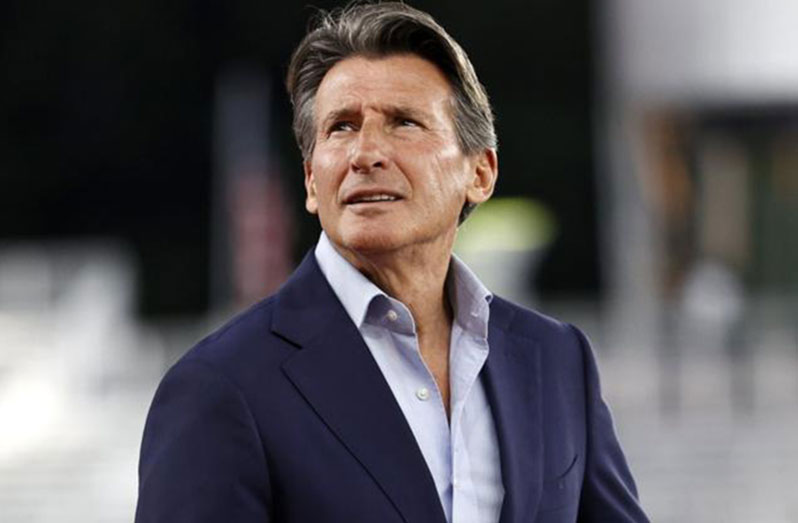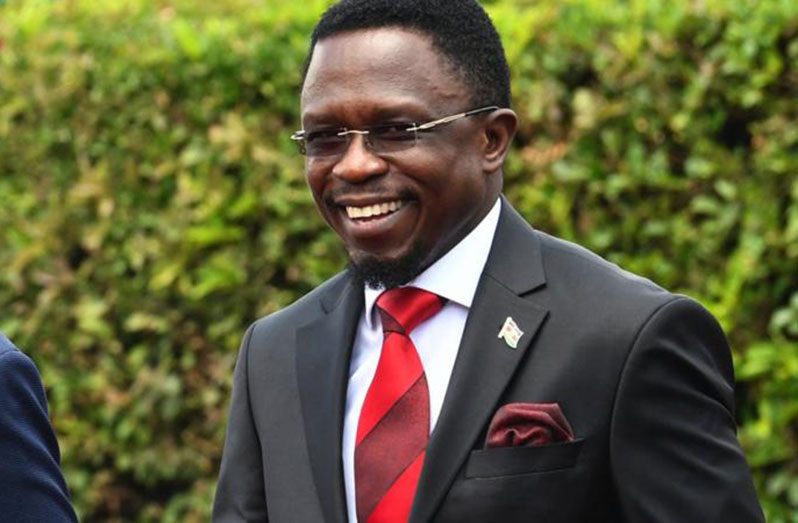KENYA’S sports minister intends to criminalise doping in athletics in an attempt to bring an end to a string of cases in the sport.
The east African country avoided a sanction by governing body World Athletics – despite having 55 athletes serving suspensions – last week after committing to spend $25M over the next five years to combat doping.
Sports minister Ababu Namwamba hopes to fast-track amendments to legislation and crack down on doping the same way the government does with drugs.
“Right now, the Kenya Anti-Doping Act of 2016 is not, in my view, sufficiently loaded to deal with this challenge with the force required,” Namwamba told BBC Sport Africa.
“Our initial investigations are that you have a very complex underground syndicate (involved in doping in athletics). It involves agents, coaches and doctors so it will need multiple instruments to be deployed to dismantle that syndicate.

“I believe we need to criminalise doping and elevate handling of doping substances to the same level (as) narcotics.
“So in the same way we deal with drug traffickers, we should deal similarly with those engaged in this practice.”
Kenya’s total of 55 athletes currently banned by the Athletics Integrity Unit (AIU) for a range of violations is the third most of any nationality behind Russia (102) and India (61).
A further eight Kenyans have been provisionally suspended and are awaiting the outcome of their cases.
The World Anti-Doping Agency (WADA) does not believe doping should be made a criminal offence for athletes, with those sanctioned having a right of appeal to the Court of Arbitration for Sport (CAS).
Russia has been banned from competing as a nation in athletics since 2015 but World Athletics president Lord Coe told BBC Sport that Kenya was not going to face a similar fate, although the situation in the country was “very serious”.
“They weren’t going to be banned because unlike the Russian situation, which we’ve been dealing with for the last seven years, there is no obvious evidence that this is state-sponsored or state-secured,” Lord Coe said.
“The challenge in Kenya is difficult and chaotic.
“The one thing that I’m optimistic about is from the very highest level of government through all the stakeholders that you would want on board – like the Anti-Doping Agency of Kenya, Athletics Kenya, the athletes themselves – there is a real determination to try and resolve this.”
PREVIOUS FAILURE
Previous attempts to criminalise doping in Kenya have been unsuccessful, with a motion by former Member of Parliament and ex-athlete Wesley Korir defeated in 2016.
The proposal to amend the rules of the Anti-Doping Agency of Kenya (ADAK) was rejected because it went against the WADA code of criminalisation.
However, Namwamba is confident he can succeed in changing laws and will “have a conversation” with WADA to make sure its code is not broken.
“I believe doctors, agents and coaches are primary offenders and athletes are secondary offenders,” he said.
“And so I believe we can work out something that would satisfy the concerns of WADA in terms of classification of offences and offenders and the action appropriate for each cluster of offenders.
In response to Namwamba’s latest remarks, WADA told BBC Sport Africa it does not seek to interfere in the sovereign right of any government to make laws for its people.
“WADA and its partners in the anti-doping community do, however, support governments that introduce laws penalising those who are trafficking and distributing banned substances – those individuals who are ultimately putting banned substances into the hands of athletes,” a statement from the organisation added.
“The agency acknowledges that countries that have introduced criminal legislation for doping have been effective in catching athlete support personnel that possess or traffic performance-enhancing drugs.”
Lord Coe says Kenya has a “long journey” to rebuild trust in the sport, but sees difficulties ahead if athletes involved in doping are exposed to the risk of criminal proceedings.
“I don’t have a problem with criminalising the trafficking of these substances, malfeasance and corrupt behaviour around giving athletes these substances,” the 66-year-old said.
“Laying criminal law over sports law is very, very complicated. In sport we can actually ban – and we ban very quickly and we do it on a sporting code.
“If you then have a tier of criminal law, then there is a very different level of evidence you need in order to convict and that’s always the challenge
My issue is not actually about criminalising trafficking or making sure that the illegal use of anabolic steroids is a criminal offence. It’s actually criminalising the athletes themselves, because that is very complicated to have that overlay of those two different codes.”
Despite the challenges ahead of him, Namwamba is sure he can succeed in getting Kenya’s laws changed.
“I believe that I’ll convince parliament on the seriousness of this matter,” Namwamba said.
“What is at stake is beyond merely the fate of an athlete. What is at stake are the national brand and a whole economy that revolves around athletics, and it’s a huge economy.
“Many members of parliament represent constituencies whose economies are driven by athletics money or talent. They wouldn’t want to compromise that.
“I want to have a very candid conversation with parliament. I believe parliament will buy into this novel agenda of rescuing Kenya’s image.”
(BBC Sport)




.jpg)










